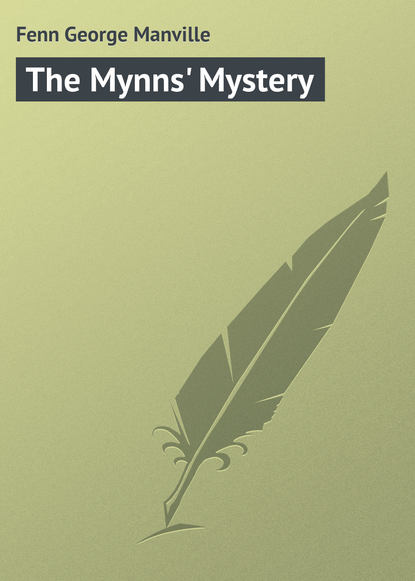По всем вопросам обращайтесь на: info@litportal.ru
(©) 2003-2025.
✖
The Mynns' Mystery
Настройки чтения
Размер шрифта
Высота строк
Поля
“Yes, that will do; they bring in no interest worth having.”
“It shall be done, sir. But it will be nearly a fortnight before the transfer can be made.”
“That will do. There is no hurry. Shall we join the ladies now?”
“By all means.”
About an hour later Saul Harrington took his leave, looking friendliness personified, as he promised to be down again soon.
“And disabuse your mind of those fancies, George,” he said, as they walked down to the gate.
“What fancies?”
“About Gertie. Had it been as you say, I had a couple of years for my siege. To show you that you are wrong, I want you to make me a promise.”
“What is it?”
“Let me be best man at your wedding.”
“I was going to ask you.”
“Then that’s settled. Good-night. I’ll put matters in train for the investment.”
“Thanks, do; you see I am in earnest.”
“It takes some thinking out,” said Saul, as he walked slowly toward the station, cigar in mouth, “but it’s worth working for. Poor miserable idiot! And he believes he’s cleverness refined.”
“I don’t quite see through Master Saul’s game,” said the object of his thoughts, as he lit a fresh cigar, and after walking up and down the path a few times, went into the study, where he threw himself upon a couch, and lay looking through the soft wreaths of smoke.
“He’s as jealous as a Turk, and he’d do anything to come between me and little Gertie. But, poor little lass, she’s caught – limed. That’s safe enough. The brute! He led me on and on that night, over that bad champagne, and hardly touched it himself. Wanted to show me up here; and it only made the little darling fonder of me. He’s plotting, but he’s a shallow-brained ass, and one of these days I shall come down upon him a crusher. Now, what does he mean about that money. I don’t want to lose two thousand, but would with pleasure to get him out of the way, for he’s like a lion in one’s path, and I never feel sure. Next heir, eh? Next heir. And my coming kept him out of the cake.”
“Well, Master Saul Harrington,” he said, after a pause, “you may be very clever, but one gets one’s brains edged up a bit out in the West, and if you mean mischief over that money, pray, for your own sake, be careful, for two can play at that game.”
He rose slowly and marched across to the cabinet, one of whose drawers he unlocked; and as he stood with his back to the window, a dimly-seen face appeared at a short distance from one of the panes, and was made more indistinct by a tuft of the evergreen which grew at the side, and half behind which the owner of the face was concealed.
The watcher gazed eagerly in, but was unable to make out whether the occupant of the room was examining letters or counting over money – the latter suggested itself as correct.
But he was wrong, for the possessor of The Mynns was slowly and carefully thrusting cartridge after cartridge into the chambers of a large revolver, one which had been his companion far away in the West.
“‘A friend in need is a friend indeed,’” he said, as he closed the drawer. “It may be imagination, but when one has a fortune, a goodly home, and a pretty girl waiting to call one ‘hub,’ a fellow wants to live as long as he can. If it’s fancy, why, there’s no harm done.”
As he spoke, the face at the window was still watching, but so far from the pane as to be invisible from within.
Chapter Seventeen
Legal Advice
“Hullo! What do you want? Never sent for you.”
“No,” said Doctor Lawrence gruffly, “I came without,” and he seated himself in one of the old, worn, leather covered chairs in the lawyer’s private room at Lincoln’s Inn.
“But I’m right as a trivet, Lawrence, and if I was not, I should not consult you.”
“I know that. You never did.”
“Well, you never came to me about your legal affairs.”
“Of course I did not. If I had we should never have remained friends.”
“Humph! Then you think I should have ruined you.”
“Well, you think I should have poisoned you.”
“There! get out. What’s the matter, Lawrence?”
“I’ve come to consult you.”
“You have? Then hang it all, old chap, I’ll have jaundice or gout next week.”
“About The Mynns’ affairs.”
“Oh! Then I’ll keep quite well. What’s the matter now?”
“Sit down, Hampton, and let’s talk quietly, old fellow, as friends.”
The old lawyer sat down, took a penknife from a drawer, and throwing himself back in his chair, began to pare his nails.
“Well, what is it?” he said.
“I’m very uncomfortable about the state of affairs down yonder.”
“So am I, and I get no peace of my life.”
“How’s that?”
“The wife!”
“Oh! Shouldn’t have married.”
“Too late to alter that now.”
“But what do you mean?”
“Mean? Why, of course, situated as we were, the wife agreed to poor little Gertrude’s wishes, and stayed at The Mynns to play propriety till those two were married; and now I want to get home to my own fireside, but we seem regularly stuck, and the worst of it is, we are unwelcome visitors.”
“Yes, I saw that.”
“Then can you imagine a more unpleasant position for a well-to-do old chap like myself; staying at a house where your host always shows you that you are not wanted?”











